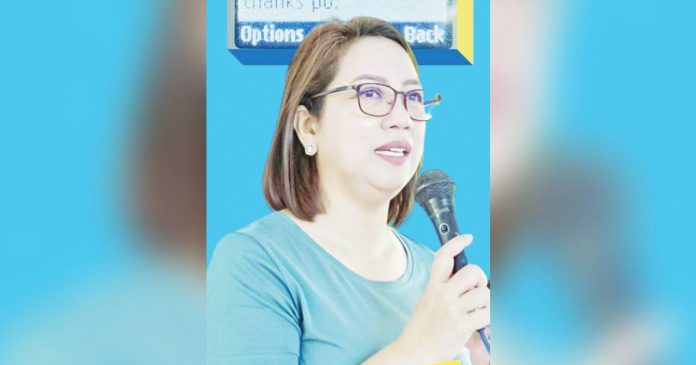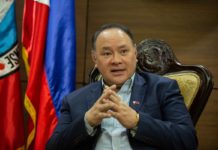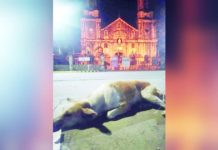
BY ADRIAN STEWART CO & IME SORNITO
MANILA – The Office of the Ombudsman has charged former Department of Health (DOH) secretary and current Iloilo 1st District Rep. Janette Loreto-Garin, along with three other officials, in relation to the controversial anti-dengue vaccine, Dengvaxia.
Alongside Garin, former DOH undersecretary Kenneth Go, former DOH officer-in-charge director Maria Joyce Ducusin, and former Philippine Children’s Medical Center executive director Julius Lecciones have been accused before the Sandiganbayan’s Seventh Division.
The charges involve graft and technical malversation due to the alleged unauthorized purchase of the vaccine during the Aquino administration.
The Ombudsman specifically held the respondents accountable for the alleged realignment of the DOH budget for the purchase and rollout of Dengvaxia for public school students.
The government spent P3.5 billion to purchase Dengvaxia from pharmaceutical giant Sanofi Pasteur in 2016 as part of the Health department’s expanded immunization program.
The Ombudsman, however, pointed out that Dengvaxia vaccine was not listed in Volume 1 of the Philippine National Drug Formulary, and had not secured an exemption from being listed in the Formulary, which it said was a violation of Executive Order No. 49, series of 1993, and related administrative orders and issuances.
“[These circumstances are] to the damage of public service [and are] contrary to law,” added the charge sheet filed by the Ombudsman on Tuesday afternoon, Oct. 24.
The Sandigabayan recommended an P18,000 bail for each accused in the case.
Over 800,000 grade schoolchildren had already been vaccinated when Sanofi announced that Dengvaxia could cause severe dengue if the vaccinee had not been infected by the virus before immunization.
Garin: ‘My Conscience is Clear’
Garin, in a statement sent to Panay News, welcomed the charge. She said it is the best recourse to put an end to the Dengvaxia issue.
She insisted her conscience was clear and there was no corruption in the purchase of the vaccine.
“Globally, the Philippines got the cheapest price. The whole world is continuously using the vaccine. It is listed in World Health Organization’s Essential Medicines List which means all countries are mandated to make it available to its people at all times. The nuance between pro-vaccine and anti-vaxxers is part of the challenges of doctors and vaccinologists like us,” Garin said.
The lawmaker also asserted that there was no realignment of funds as the Special Allotment Release Order (SARO) from the Department of Budget (DBM) clearly stated it was for dengue vaccines for Central Luzon, Calabarzon, and the National Capital Region.
“We just followed [the] DBM-issued SARO. Hence, better to present sa court para matapos na rin [it to the court for this to end],” the Iloilo representative said.
In July this year, Garin also issued a statement saying the dengue vaccine is safe, citing that the manufacturer, the World Health Organization and the Food and Drug Administration (FDA) were the ones that gave permission for its use, and not the DOH.
“Safe ba ‘yung bakuna? Yes. Because that is accepted globally. Twenty-five years pinagdaanan ng pag-aaral and even WHO has classified it as something that the government should make available at all times. Ang nakikita namin dito ay medyo merong konting disconnect at hindi nagkakaintindihan,” she added.
Meanwhile, also last July, there were already three applications for the commercial use and sale in the Philippines of new dengue vaccines, but the FDA said Dengvaxia was not among them.
The FDA did not explain why it could not identify the three brands, but it was apparently linked to the vaccine safety controversy that arose after the deaths of at least 60 schoolchildren were linked to the Dengvaxia shots they received in 2016.
Sanofi’s Dengvaxia, the world’s first dengue vaccine, was licensed in 2015 and was used in a P6.6-billion school inoculation program in 2016.
But the French drugmaker reported in 2017 that Dengvaxia was found to increase the risk of severe disease in “seronegative” children, or those who had no prior dengue exposure when they got the shot.
The Philippines’ FDA subsequently revoked Dengvaxia’s registration after the controversy that caused vaccine hesitancy and misinformation among parents. (With a report from Philippine Daily Inquirer)/PN



